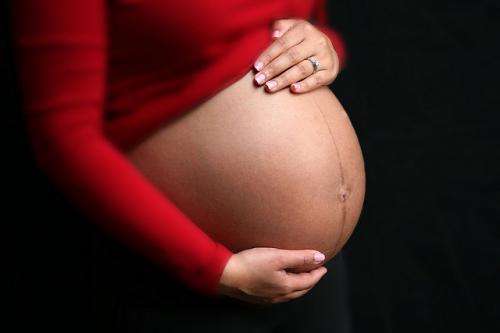Vitamin D vital for gene expression in developing brains

Vitamin D deficiency in mothers leading up to and during pregnancy has fundamental consequences for their offspring's brain development, researchers from University of Western Australia and the Telethon Kids Institute have confirmed.
The collaborative study used a mouse model to investigate prenatal vitamin D deficiency.
The researchers found that body length, head size and lateral ventricle volume were reduced in the offspring of vitamin D deficient individuals and most importantly, gene expression in the brain was significantly altered.
Female BALB/c mice (albino inbred laboratory strain mice; Mus musculus ) were placed on either a vitamin D controlled diet or a vitamin D devoid diet, five weeks prior to and during pregnancy.
Foetal brains were analysed for morphology and gene expression at 14.5 days and 17.5 days of embryonic development.
"Day 14.5 is about two-thirds of the way through a mouse pregnancy, the foundation of the brain has been laid down, but there is still a lot of development to do and day 17.5 is just before birth," UWA School of Anatomy Physiology and Human Biology researcher Dr Caitlin Wyrwoll says.
"This gives us a maturational read out of the brain."
The study investigated the gene expression of four neurotrophic genes responsible for the production of proteins which relate to the survival, development and function of neurons (nerve cells).
Speech and "feel good" protein impacted
Of the four genes, forkhead box protein p2 (Foxp2) and tyrosine hydroxylase (TH) had the most dramatic change due to the induced vitamin D deficiency in the mothers.
Gene expression of Foxp2, involved in speech and linguistic development, was reduced by 30-32 per cent in the pups of vitamin D mothers at day 14.5.
"Foxp2 seems to be very important in terms of language and there is suggestion it might also be disrupted in some cases of autism spectrum disorders," Dr Wyrwoll says.
At day 17.5, almost the full term of a mouse pregnancy, protein staining for Foxp2 of the cortex showed a 69 per cent reduction of proteins in female offspring of vitamin D deficient mothers.
TH expression was also significantly altered in the brains of pups of vitamin D deficient mothers.
TH is the rate-limiting enzyme involved in synthesis of the "feel-good" chemical dopamine.
The researchers found a 67 per cent reduction in TH gene expression at day 17.5 in female pups of vitamin D deficient mothers.
She says this study highlights the important role vitamin D plays in the early stages of brain development.
More information: "Maternal vitamin D deficiency alters fetal brain development in the BALB/c mouse," Behavioural Brain Research, Volume 286, 1 June 2015, Pages 192-200, ISSN 0166-4328, dx.doi.org/10.1016/j.bbr.2015.03.008
















